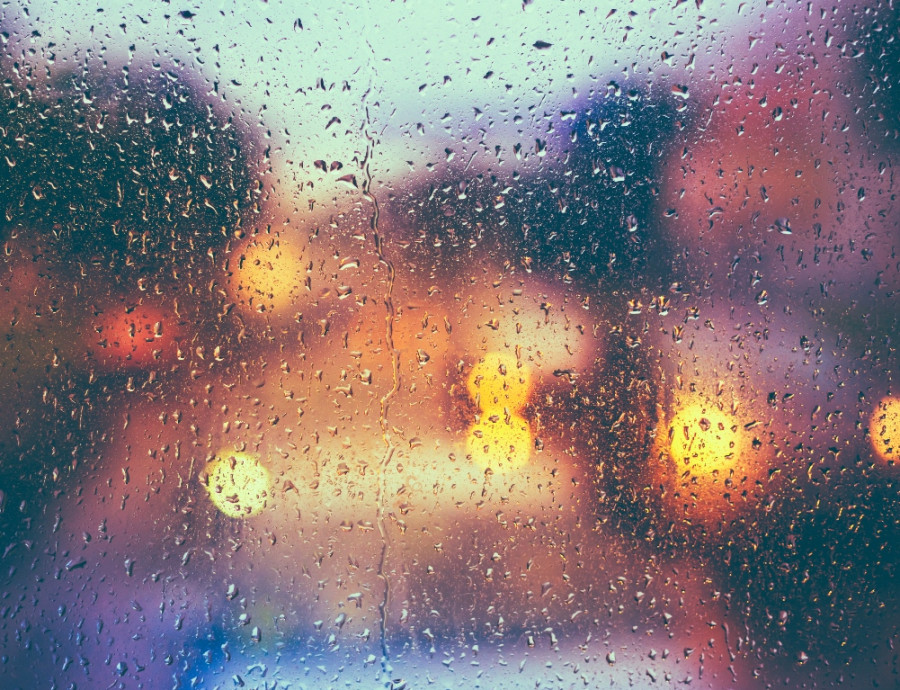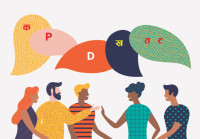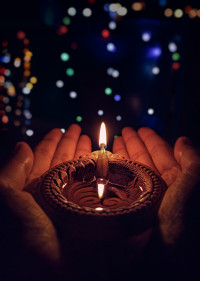As it is
Rain.
By the time I finish telling my favourite umbrella story, we’ve managed to hail a taxi and gotten in. I knew it was going to be a story with a happy ending, you say.
Prateebha Tuladhar
When you put your left arm around my shoulder, we seemed to fit better under the umbrella. We started walking toward the bus stand. You want to hear an umbrella story? I asked.
I started telling you about Miti and Ravi. About how they had met in a bookstore on a rainy day in an American town and Ravi had asked her if she was from India. And how he had asked this complete stranger to share her umbrella when she was leaving because he didn’t have one. I narrated the entire story with details about how Ravi had started singing Bollywood songs out of the blue and hogged the umbrella, while Miti got drenched and therefore angry. You laughed when I came to the part where she told Ravi he was behaving like the Indian government, patronising her Nepaliness. “Taking what is mine and pretending like you’re doing me a favour!” she had almost yelled at Ravi. What had happened was that in offering to hold the umbrella since he’s taller, Ravi had pulled the umbrella closer over himself, while petite Miti came under the fast falling rain. So, the two had got into a fight and Ravi eventually offered to buy this stranger— a Nepali woman he just met— dinner, to apologise. More dinners and arguments followed and two years later, they were married.
By the time I finish telling my favourite umbrella story, we’ve managed to hail a taxi and gotten in. I knew it was going to be a story with a happy ending, you say. We smile a lot at each other, and at the rain.
...
We’re meeting after three years.
We’ve been trying to locate one another for close to an hour. It’s raining in barrels, like it always does in this city. The rain is blinding. Visibility is six feet. Attempts to call each other on the phone is deafened by the fury of rain. So, you end up going round and round in circles, trying to find the ice cream place where I’m standing— holding a half-eaten cup of ice cream, my shoes now mugs-full of rainwater.
When you finally catch the sight of me at some distance, your anxiety immediately gives way to amusement. You cannot hide it. But you’re trying hard not to grin. You walk briskly toward me and cover me in a shower of slurs. You can’t give directions, can you? You can’t even read a Google map! And what the hell is an ice-cream place? We fence in words that we think are abrasive enough to scar one another with tenderness. We’ve always hidden behind words during our little verbal battles, desperate attempts to conceal what’s melting.
When we’re finally done battling, I stretch my arm, offering you my half-eaten ice cream. This is giving me a headache, I say. You finish it for me. Then we start walking. You’re walking under the rain, as buckets pour down on you. I invite you a couple of times to share my umbrella, and you keep telling me you’re fine. I’m irritated no end at your attempt to be stoic. I quicken my steps, catch up with you and we’re finally partially sheltered. After we’ve walked for a bit, you offer to hold it. And because you’re taller. I give you a look. I promise I won’t pull it towards me, you say and laugh. I laugh. I slide one arm around your waist. Yours goes around my shoulders.
We keep walking.
...
We stood in the rain. There was no cover. Kathmandu rain fell in torrents in that moment. It fell fast. So fast, we seemed to be drowning quickly. But we didn’t drown. We just stood there on the pavement. Staring at each other. Your bike, parked by the pavement, was dripping; rivulets running down its handle and seat. The street was quickly turning into a stream. People ran. In search of cover. A roof to run under. An awning. Anything. But there was nothing. Just the stretch of the street, the pavements, cars, buses, scooters and motorbikes, tempos and people.
Some people walked holding their staggering umbrellas upright against the weight of the water that oppressed them. Some, like you and me, without umbrella or raincoat, ran helter-skelter. That’s how they described the crowd running in different directions, in a book I read so many years ago, when I was a child. Helter-skelter.
But what could you and I have done? We simply stood there in the rain. Stared at each other. You said I should take a taxi home. What about you? I yelled, competing with the sound of rain. I can’t leave my bike here, you said. I have to wait for it to let up and then ride. And I just stood there, unable to move. It seemed to me at that moment like if I left, I’d never see you again. It felt like the world around us was being swept away by the heavy rainfall. It felt like the sky would fall and everything would come to an end that afternoon. So, we just stood there, struggling to keep our eyes open against the large drops that stung our faces. I shut my eyes now and then, trying to ensure my contact lens were still in place, and opened them to see if you were still there. Apocalypse on my mind.
We stood, drenched in the helplessness of not needing each other outside of our wants.
Then a taxi slowed down, the driver lowered the windshield and asked if I needed a ride. I got in. You stood there on the pavement. The rain was battering at you. The taxi started to drive away. I looked away from you and at the seat, which was starting to soak with me. Maybe I would seep a river in the car and the deluge would swallow me whole. Maybe that’s how you and I would end. In Kathmandu rain.
...




 22.64°C Kathmandu
22.64°C Kathmandu










